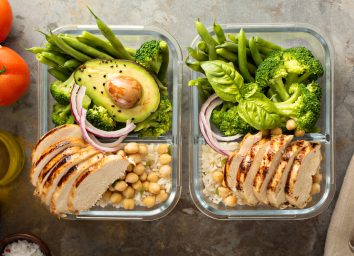Best Weight Loss Diets For 2022, Recommended By A Dietitian
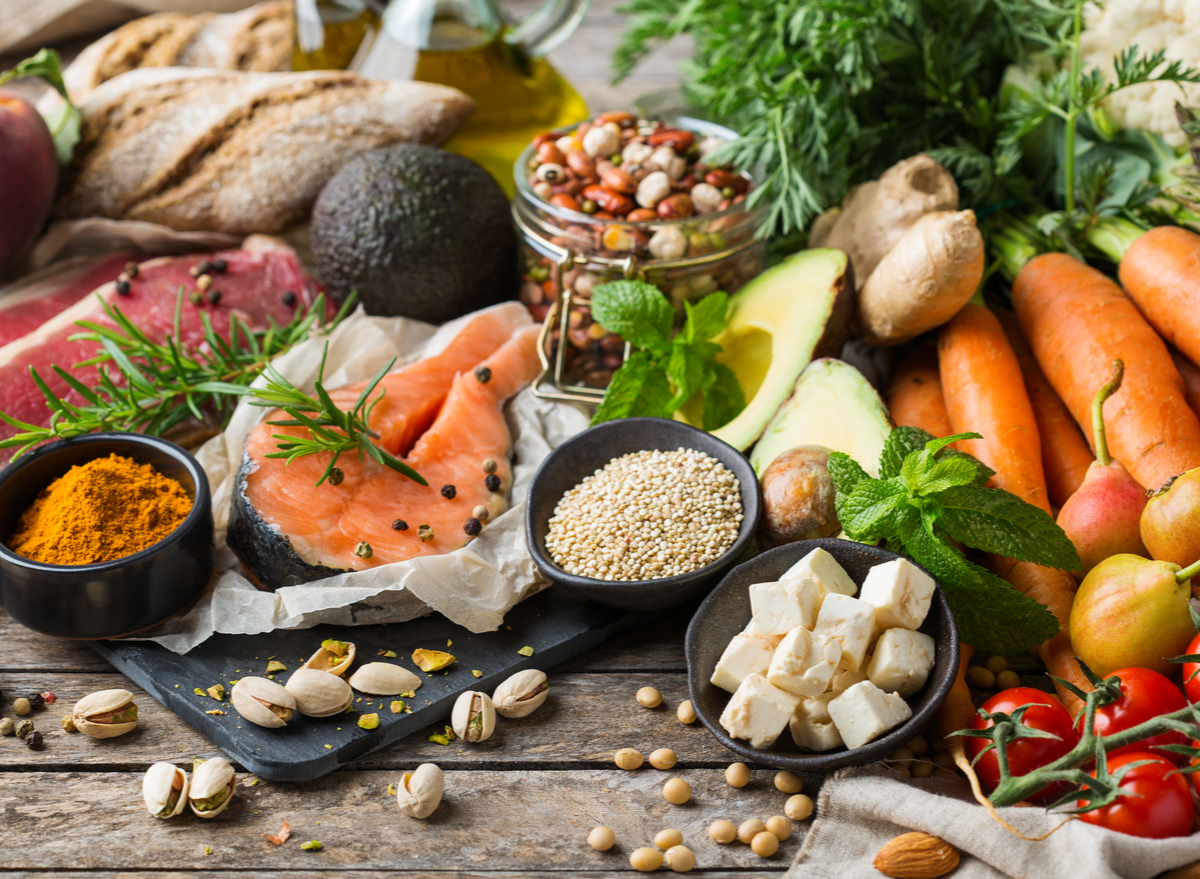
With every new year comes a renewed interest in weight loss diets. And thanks to the COVID-19 pandemic and resulting eating habits like ordering more take-out meals and eating more ultra-processed foods, many of us have noticed a few extra pounds on our frames by now.
The number of weight-loss diets to choose from appears to be endless, but that doesn't mean they're all worth trying. Some options are better for your overall health than others.
Among the sea of unique spins on methods to lose weight, here are some top picks that are sustainable, realistic, balanced, and 100% dietitian-approved. Read on, and for more on how to eat healthy, don't miss 15 Underrated Weight Loss Tips That Actually Work.
Mediterranean Diet
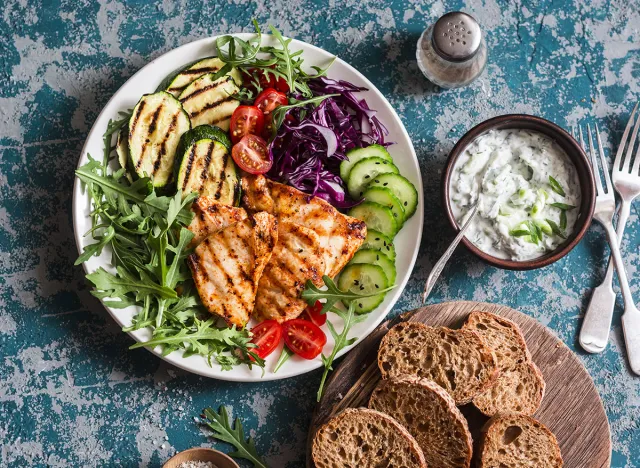
A diet that mimics what many people who live along the Mediterranean coast eat–think olive oil, nuts, vegetables, and whole grains–is one of the most popular diets out there. And although most data surrounding this diet are strongly linked to outcomes like a reduced risk of heart disease and improved cognition, following it may result in weight loss as well.
And even though following this diet results in similar weight loss as other popular diets (like the low-carb diet), following it can support your health in a variety of ways–and in a delicious way too.
Flexitarian Diet
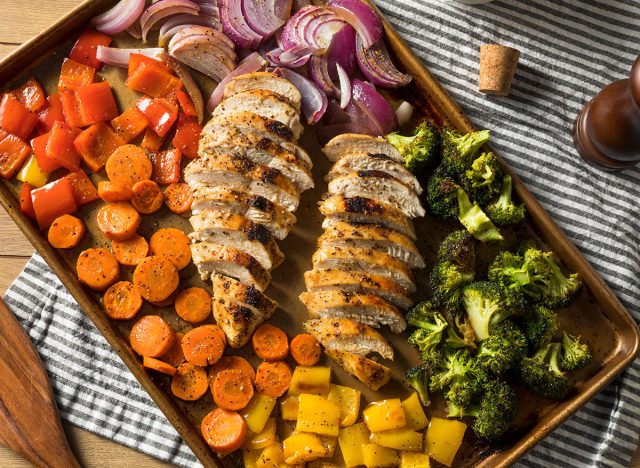
Created by registered dietitian Dawn Jackson Blatner, RDN, the Flexitarian Diet combines the concepts of following a vegetarian diet with including moderate amounts of animal products. The concepts and guidelines of this diet are detailed in her book The Flexitarian Diet.
Along with the protein source guidelines, this diet suggests that people limit added sugars and ultra-processed foods that are low in nutritional value.
Data shows that people who follow vegetarian diets appear to have more weight management benefits when compared to non-vegetarian diet-eaters. Following a flexitarian diet–essentially a vegetarian diet with small amounts of animal proteins sprinkled in–can offer weight management benefits while possibly helping people who enjoy an occasional lean piece of beef or a hard-boiled egg with the compliance factor.
WW
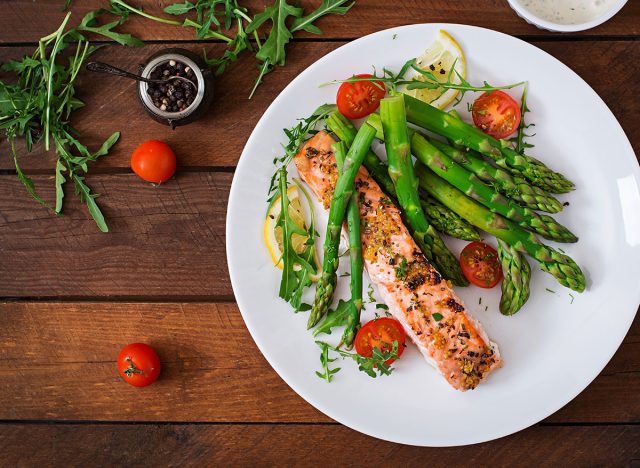
WW (formerly Weight Watchers) personalizes your nutrition plan based on a series of questions. Participants also have access to support via the WW app, workshops, and plans to provide behavior-change techniques.
What is extra nice about this program is people can get 1:1 support virtually, eliminating potential barriers to not being able to engage with the program fully. And as a dietitian, I love how this program is that no food is off-limits. And since each participant gets a unique "points" budget and zero points food list, it is nice that this program does not take a "one-size-fits-all" approach.
Mayo Clinic Diet
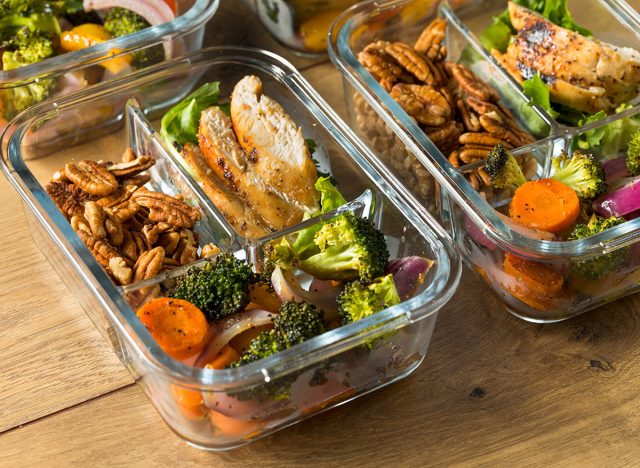
The Mayo Clinic Diet's goal is to build healthy eating habits. To follow this diet, you start with a two-week "Lose It" phase, where you add five habits, break five habits, and take on five optional bonus habits if you choose.
After the two-week jumpstart, the "Live It" phase begins. During this phase, you would focus on sustainable habits. When following this diet, people can also use the Mayo Clinic Diet app, which contains meal plan options, a food tracker, and a database of recipes.
Dietary guidance is provided, with the help of their unique food pyramid that highlights which foods should be eaten more frequently than others. A psychological quiz, at-home workouts, a habit optimizer, and other beneficial features are included as well.
The fact that this diet focuses on developing good and sustainable habits that are hopefully going to follow people over the long term makes this plan a dietitian's dream come true. Gaining new habits instead of simply following a meal plan can help people experience lasting results.
Jenny Craig Max Up

The newest Jenny Craig plan goes beyond a simple eating plan and includes a holistic approach to weight loss. Along with dietary support, this program includes an activity curriculum, quality of life assessment, and hydration guidance. Plus, the program takes advantage of new technology by utilizing an app that is linked to a wireless scale for easy monitoring. After four weeks of following this program, participants may experience up to an 18-pound weight loss according to the company's website.
While diet is an important part of a weight loss plan, it isn't the only part of a weight loss plan. I love how this program emphasizes physical activity, hydration, and quality of life as important factors of a weight loss journey along with food choices.
Read these next:

